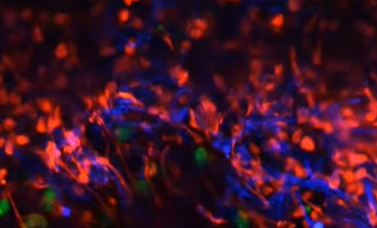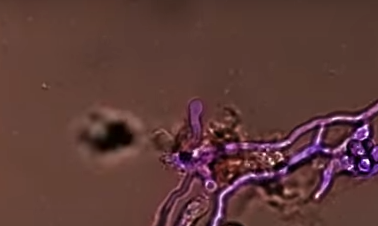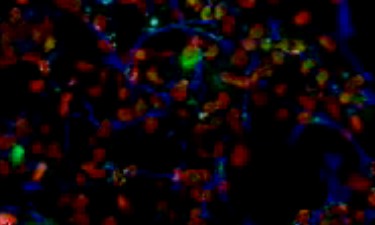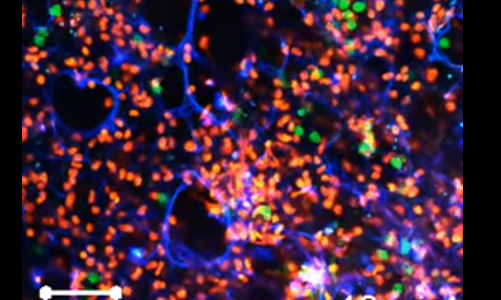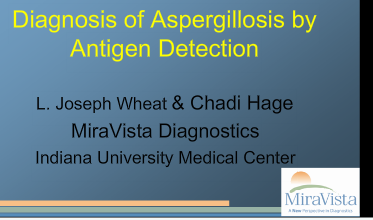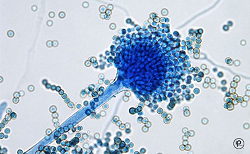Description:
Fungi are everywhere. They’re present in the air, in our food, some even live inside our bodies. But most of us rarely think about diseases caused by fungi. This is because our defences do a really good job in keeping them in check.
However for millions of people whose immune system are defective fungi can cause serious infections that are hard to treat and can be life threatening.
A group of cells called phagocytes play a key role in keeping us safe from fungi. They normally patrol our body so when there’s a breach they are the first to respond. Their function is to seek eat and destroy microbial intruders.
But no all fungi are alike. My Ph.D. project aims to understand how phagocytes tackle such different targets. So far I have found there are huge differences in the rate at which various different fungi are engulfed by phagocytes.
The speed of these processes depends on the chemical composition of the fungi, whether they are alive or dead, and whether they are coated with human proteins that help to mark them as intruders.
Understanding the basic biology behind these processes is the first step towards developing new treatment strategies.
Maria Fernanda Alonso works in Professor Neil Gow’s lab at the University of Aberdeen.
Medical and Patient education videos
-
Title
Description
-

An interesting description of how a skin prick test is carried out with the intention of finding out which substances a patient is allergic to. Amongst other substances Aspergillus is tested for in this video.
This type of test is quick and easy to carry out and can be useful when screening a large number of allergens. More detailed description
-

The CF Discovery SeriesTM is an informative and engaging program designed to educate and uplift those with cystic fibrosis. Through interactive presentations with experts in the field, those living with cystic fibrosis gain information in a setting which encourages camaraderie and community. You can attend these events in person. Guests attending in person must follow CFRI’s Infection Control Policy, found here.

